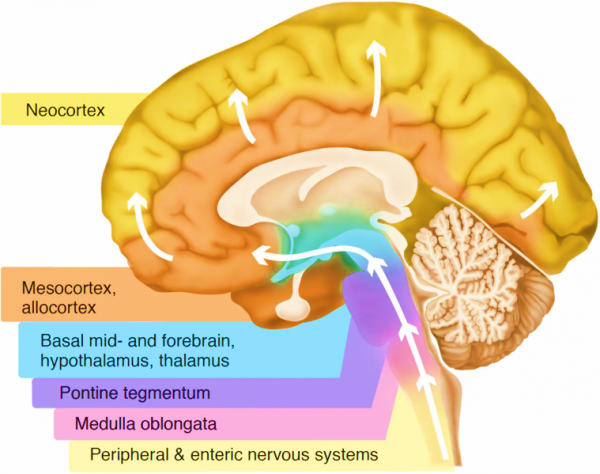
Stages & Symptoms of Alzheimer’s disease
November is Alzheimer’s awareness month! It is important to understand the symptoms and stages of Alzheimer’s disease as you may come across a person with these symptoms. The symptoms of Alzheimer’s disease worsen over time, although the rate at which the disease progresses varies. On average, a person with Alzheimer’s lives four to eight years after diagnosis, but can live as long as 20 years, depending on other factors.
Stage 1: Normal Outward Behavior : Only a PET scan, an imaging test that shows how the brain is working, can reveal whether he has Alzheimer’s or not. One can see more changes as the person goes through next stages.
Stage 2: Very Mild Changes : At this stage, some symptoms of Alzheimer’s that starts showing in a person generally do not interfere with his ability to work or live independently.
- Problems coming up with the right word or name
- Trouble remembering names when introduced to new people
- Having greater difficulty performing tasks in social or work settings
- Forgetting material that one has just read
- Losing or misplacing a valuable object
- Increasing trouble with planning or organizing
| Signs of Alzheimer’s/dementia | Typical age-related changes |
| Poor judgment and decision-making | Making a bad decision once in a while |
| Inability to manage a budget | Missing a monthly payment |
| Losing track of the date or the season | Forgetting which day it is and remembering it later |
| Difficulty having a conversation | Sometimes forgetting which word to use |
| Misplacing things and being unable to retrace steps to find them | Losing things from time to time |
Stage 3: Mild Decline: It is at this point that you start to notice changes in your loved one’s thinking and reasoning, such as:
- Forgets something he just read
- Asks the same question over and over
- Has more and more trouble making plans or organizing
- Can’t remember names when meeting new people
- You can help by being your loved one’s “memory” for him, making sure he pays bills and gets to appointments on time. You can also suggest he ease stress by retiring from work and putting his legal and financial affairs in order.
Stage 4: Moderate Decline: During this period, the problems in thinking and reasoning that you noticed in stage 3 get more obvious, and new issues appear. Your friend or family member might:
- Forgetfulness of events or about one’s own personal history
- Feeling moody or withdrawn, especially in socially or mentally challenging situations
- Being unable to recall their own address or telephone number or the high school or college from which they graduated
- Confusion about where they are or what day it is
- The need for help choosing proper clothing for the season or the occasion
- Trouble controlling bladder and bowels in some individuals
- Changes in sleep patterns, such as sleeping during the day and becoming restless at night
- An increased risk of wandering and becoming lost
- Forgetting about amount on checks
Stage 5: Moderately Severe Decline: Your loved one might start to lose track of where he is and what time it is. He might have trouble remembering home address, phone number, or where he went to school. Person may ask same question and may get more attached to one person whose face he may remember. He may able to tell a story and may not like certain people around him. He may not remember the facts and may forget where he wanted to go.
Stage 6: Severe Decline: As Alzheimer’s progresses, one might recognize faces but forget names. He might also mistake a person for someone else. They may behave like a child. Delusions might a set in, such as thinking he needs to go to work even though he no longer has a job. Other symptoms include:
- Require full-time, around-the-clock assistance with daily personal care
- Lose awareness of recent experiences as well as of their surroundings
- Require high levels of assistance with daily activities and personal care
- Experience changes in physical abilities, including the ability to walk, sit and, eventually, swallow
- Have increasing difficulty communicating
- Become vulnerable to infections, especially pneumonia
- You might need to help him go to the bathroom.
Many people with Alzheimer’s love hearing music, being read to, or looking over old photos.
Stage 7: Very Severe Decline : Many basic abilities in a person with Alzheimer’s, such as eating, walking, and sitting up, fade during this period. At this stage can no longer tell when they are thirsty. The family must stay involved by feeding loved one with soft, easy-to-swallow food, helping and making sure they drink.
References:
- http://www.alz.org/
- http://www.alzheimers.net/
- https://www.alzinfo.org
Image credit: https://commons.wikimedia.org/wiki/File:BraakStagingbyVisanjiEtAl.png
Attribution: Visanji, Naomi P., Patricia L. Brooks, Lili-Naz Hazrati, and Anthony E. Lang. / CC BY (https://creativecommons.org/licenses/by/2.5)
Author: Sumana Rao | Posted on: November 3, 2016
« What Do You Know About Varakh (Silver Foil) On Sweets Dementia, Alzheimer’s & Coconut Oil »






















Write a comment